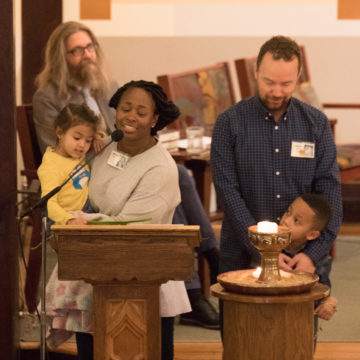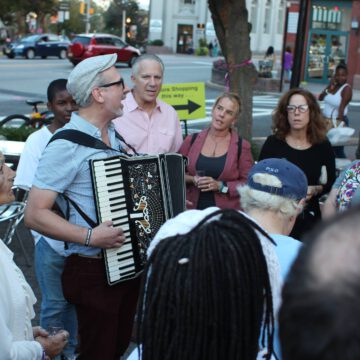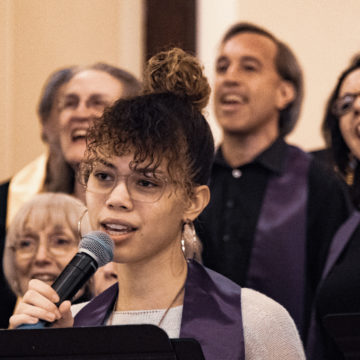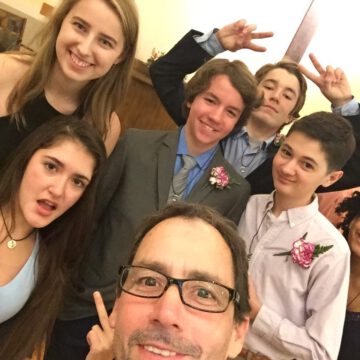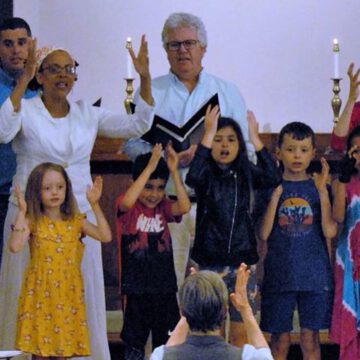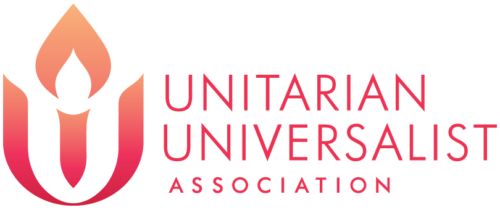What is Unitarian Universalism?
There around 215,000 people representing over 1,000 Unitarian Universalist (UU) congregations in North America. Unitarian Universalism is a non-dogmatic, non-creedal faith. We are a covenantal religion held by a set of guiding principles. While many other churches have been closing their doors, Unitarian Universalism grew nationally by 15.8% from 2000 to 2010, according to the Association of Statisticians of American Religious Bodies.
UUs are often asked “what do you believe?” You will find some of those answers here.
(If you like graphs and data, you’ll learn a lot and enjoy this information from Pew Research on Unitarians!)
Re-examine all that you have been told… dismiss that which insults your soul.
Walt Whitman, poet and Unitarian
Our Principles
All Unitarian Universalists endorse seven principles; an eight principle has been ratified by some congregations and will soon be considered by the entire association. The principles are stated as follows.
We, the member congregations of the Unitarian Universalist Association, covenant to affirm and promote:
The Flaming Chalice
The Unitarian Service Committee used the symbol of a flaming chalice during WWII in their work assisting political refugees. Since then, lighting a chalice has become a ritual in worship, recalling the principles of justice and compassion reflected in the Service Committee’s ministry. The flaming chalice has come to represent the Unitarian Universalist movement as a whole.
Who Are We?
We are brave, curious, and compassionate thinkers and doers. We are diverse in faith, ethnicity, history and spirituality, but aligned in our desire to make a difference for the good. We have a track record of standing on the side of love, justice, and peace.
We have radical roots and a history as self-motivated spiritual people: we think for ourselves and recognize that life experience influences our beliefs more than anything.
We need not think alike to love alike. We are people of many beliefs and backgrounds: people with a religious background, people with none, people who believe in a God, people who don’t, and people who let the mystery be. We are Unitarian Universalist and Buddhist, Christian, Hindu, Humanist,
Jewish, Muslim, Pagan, atheist and agnostic, believers in God, and more.
On the forefront of Lesbian, Gay, Bisexual, Transgender, and Queer inclusion for more than 40 years, we are people of all sexual orientations and gender identities.
We seek to welcome your whole self, with all your truths and your doubts, your worries and your hopes.
Our faith tradition draws from many sources. Each of these inform our history and our present. Use the clickable list to learn more about each of our sources.
- Experience
- Words & Deeds
- World Religions
- Judaism & Christianity
- Humanist Teachings
- Earth Centered Teachings
Direct experience of that transcending mystery and wonder, affirmed in all cultures, which moves us to a renewal of the spirit and an openness to the forces which create and uphold life
Words and deeds of prophetic people which challenge us to confront powers and structures of evil with justice, compassion, and the transforming power of love
Wisdom from the world’s religions which inspires us in our ethical and spiritual life
Jewish and Christian teachings which call us to respond to God’s love by loving our neighbors as ourselves
Humanist teachings which counsel us to heed the guidance of reason and the results of science, and warn us against idolatries of the mind and spirit
Spiritual teachings of Earth-centered traditions which celebrate the sacred circle of life and instruct us to live in harmony with the rhythms of nature
Unitarian Universalist Association
The Unitarian Universalist Congregation at Montclair is a member of the Unitarian Universalist Association (UUA). The UUA is the central organization for the Unitarian Universalist (UU) religious movement in the United States. The UUA grew from the union of two radical Christian groups in 1961: the Universalists, who organized in 1793, and the Unitarians, who organized in 1825. Each UU congregation is autonomous—congregational leaders set their own priorities and choose their own ministers and staff. Congregations vote for the leaders of the UUA, who oversee the central staff and resources.





